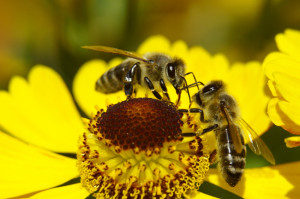Tell Your Senators: Protect Our Nation’s Waters!
Senators Hagan (D-NC) and Crapo (R-ID) are planning on sponsoring a bill? would cause untold damage to our nation’s waters. Ironically named the Sensible Environmental Protection Act, the bill would strip away the protections put in place by the Clean Water Act that ensures that surface waters meet  standards necessary for human sports and recreation. The Sensible Environmental Protection Act would reverse the 2009 ruling in National Cotton Council v. EPA that requires Clean Water Act permits from pesticide users who spray over waterways. Permits are now required for spraying activities like mosquito spraying, treatment of algal blooms or invasive species. The permit lets authorities know what is sprayed and when it is sprayed, so that the public may know what chemicals are used in their waterways, and requires monitoring for any downstream effects. An increase in carcinogens, hormone disruptors, and neurological toxicants found in our water is what we will be left with if this bill passes. Tell your Senator to oppose this dangerous bill!
standards necessary for human sports and recreation. The Sensible Environmental Protection Act would reverse the 2009 ruling in National Cotton Council v. EPA that requires Clean Water Act permits from pesticide users who spray over waterways. Permits are now required for spraying activities like mosquito spraying, treatment of algal blooms or invasive species. The permit lets authorities know what is sprayed and when it is sprayed, so that the public may know what chemicals are used in their waterways, and requires monitoring for any downstream effects. An increase in carcinogens, hormone disruptors, and neurological toxicants found in our water is what we will be left with if this bill passes. Tell your Senator to oppose this dangerous bill!
Save the Bees & Birds: Don’t Let the EPA Approve Another Toxic Insecticide
The U.S. Environmental Protection Agency (EPA) is weighing approval of a new pesticide, sulfoxaflor, which the EPA itself?admits is ?very highly toxic? to honeybees. The EPA previously approved sulfoxaflor, brought to us by Dow Chemical Co., for  use on cotton. The agency is now poised to approve the pesticide for wider use. Sulfoxaflor is considered by some to be a?fourth-generation neonicotinoid, the class of insecticides implicated in Colony Collapse Disorder because of the damage they do to bees’ brains and immune systems. On April 29, Europe passed the world’s first?continent-wide ban?on widely used insecticides linked to bee deaths, including several neonicotinoids. Yet here in the U.S., the EPA wants to approve sulfoxaflor, a pesticide that is equally, if not more, toxic to bees. Beekeepers warn that if the EPA approves sulfoxaflor, commercial beekeeping will be?extinct by 2018. If the bees disappear, so will crops, such as?almonds, blueberries, apples and broccoli, that are entirely reliant upon pollination by commercial beekeepers. Some beekeepers say that the addition of sulfoxaflor to the nearly 300 neonicotinoid products already on the market in?California alone?will mean the end of commercial beekeeping. It?s time to stop the EPA from approving sulfoxaflor, another clothianidin-like neonicotinoid bee-killing pesticide. Please sign the petition today.
use on cotton. The agency is now poised to approve the pesticide for wider use. Sulfoxaflor is considered by some to be a?fourth-generation neonicotinoid, the class of insecticides implicated in Colony Collapse Disorder because of the damage they do to bees’ brains and immune systems. On April 29, Europe passed the world’s first?continent-wide ban?on widely used insecticides linked to bee deaths, including several neonicotinoids. Yet here in the U.S., the EPA wants to approve sulfoxaflor, a pesticide that is equally, if not more, toxic to bees. Beekeepers warn that if the EPA approves sulfoxaflor, commercial beekeeping will be?extinct by 2018. If the bees disappear, so will crops, such as?almonds, blueberries, apples and broccoli, that are entirely reliant upon pollination by commercial beekeepers. Some beekeepers say that the addition of sulfoxaflor to the nearly 300 neonicotinoid products already on the market in?California alone?will mean the end of commercial beekeeping. It?s time to stop the EPA from approving sulfoxaflor, another clothianidin-like neonicotinoid bee-killing pesticide. Please sign the petition today.
Urge Congress to Protect SNAP in the Farm Bill
Severe cuts to the Supplemental Nutrition Assistance Program (SNAP) are expected in versions of the 2013 Farm Bill being introduced in both the House and Senate over the next couple of weeks. SNAP is formerly known as Food Stamps. The HouseAgriculture Committee is expected to introduce a Farm Bill that includes $20 billion in cuts to SNAP, compared with $16.5 billion last year. The Senate Agriculture Committee is expected to propose approximately $4 billion in cuts to SNAP in the  Senate Farm Bill. The 2012 House Farm Bill would have made severe cuts to the Supplemental Nutrition Assistance Program (SNAP), causing: 500,000 low-income households to lose an average $90 in monthly benefits; 2-3 million low-income individuals to lose food assistance entirely; 280,000 low-income children to lose free school meals. Now is the time to call Congress and urge Members to protect SNAP!? Please urge House members to protect SNAP and other nutrition programs in the Farm Bill by co-sponsoring: H. Res. 90 (Sponsored by Rep. McGovern). Please click here to find your Representative online or call the U.S. Capitol Switchboard at (202) 224-3121.
Senate Farm Bill. The 2012 House Farm Bill would have made severe cuts to the Supplemental Nutrition Assistance Program (SNAP), causing: 500,000 low-income households to lose an average $90 in monthly benefits; 2-3 million low-income individuals to lose food assistance entirely; 280,000 low-income children to lose free school meals. Now is the time to call Congress and urge Members to protect SNAP!? Please urge House members to protect SNAP and other nutrition programs in the Farm Bill by co-sponsoring: H. Res. 90 (Sponsored by Rep. McGovern). Please click here to find your Representative online or call the U.S. Capitol Switchboard at (202) 224-3121.

Comments are closed.